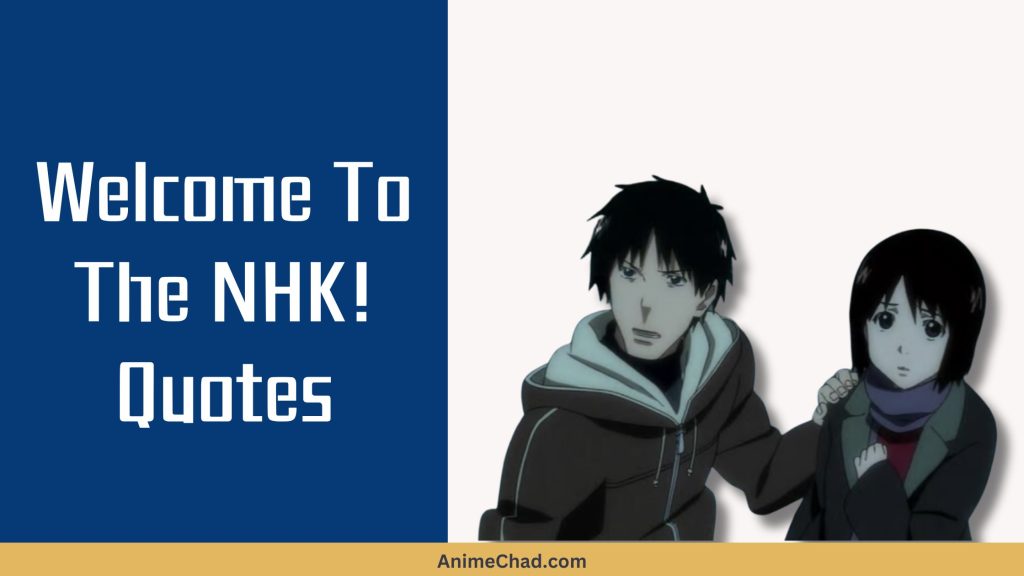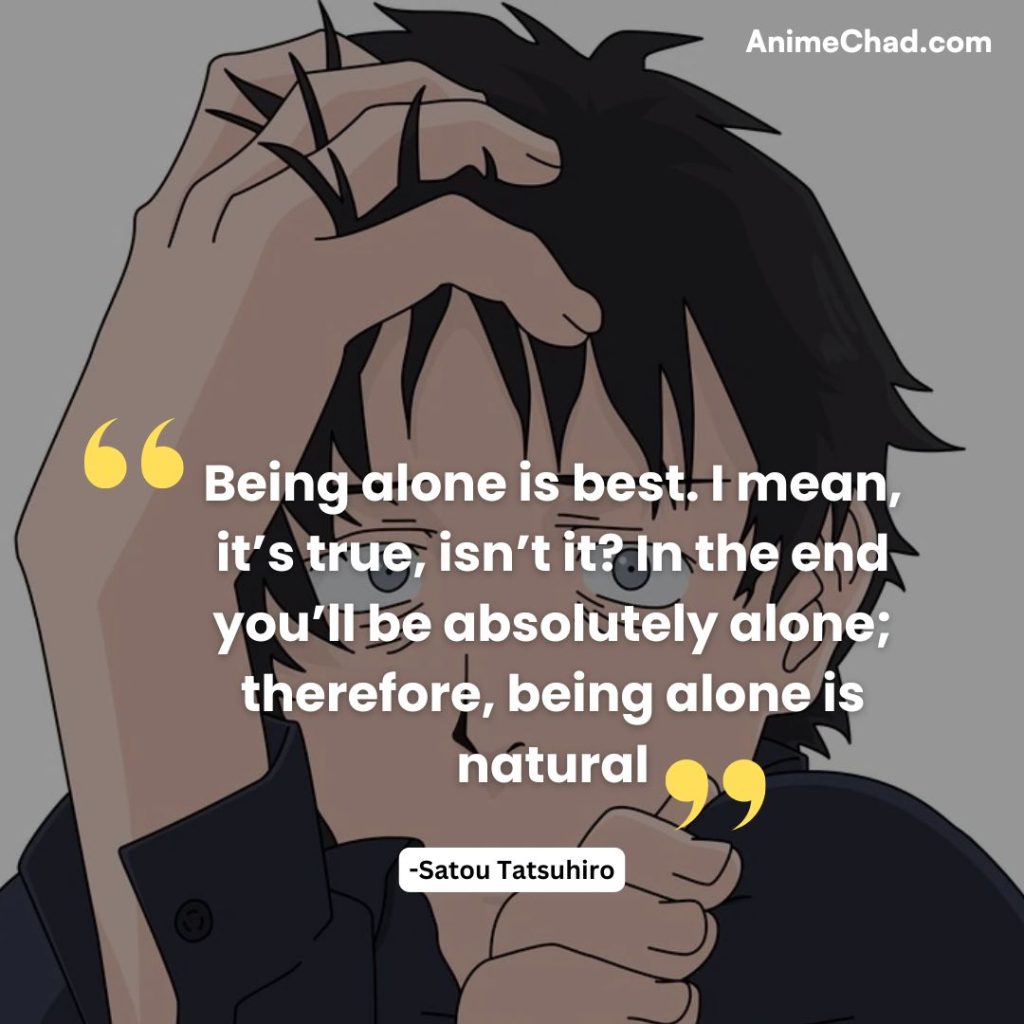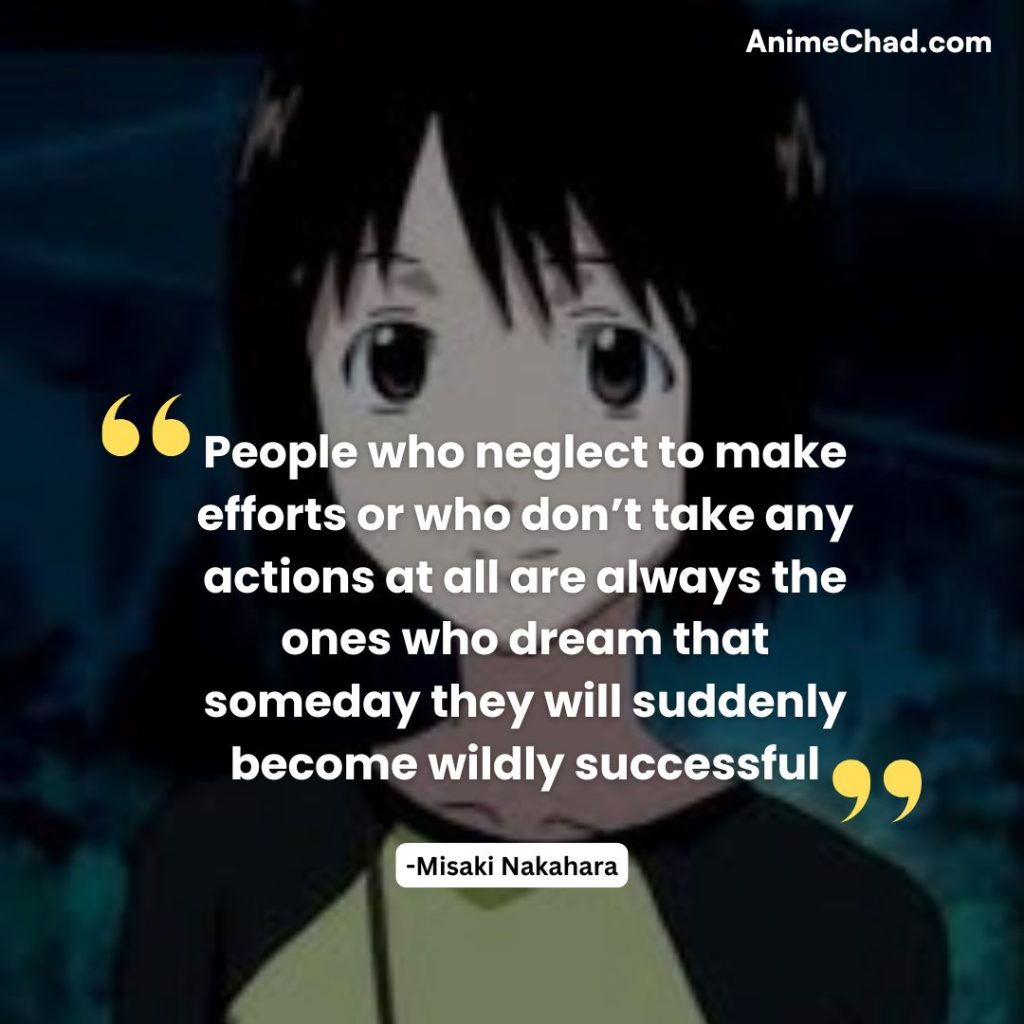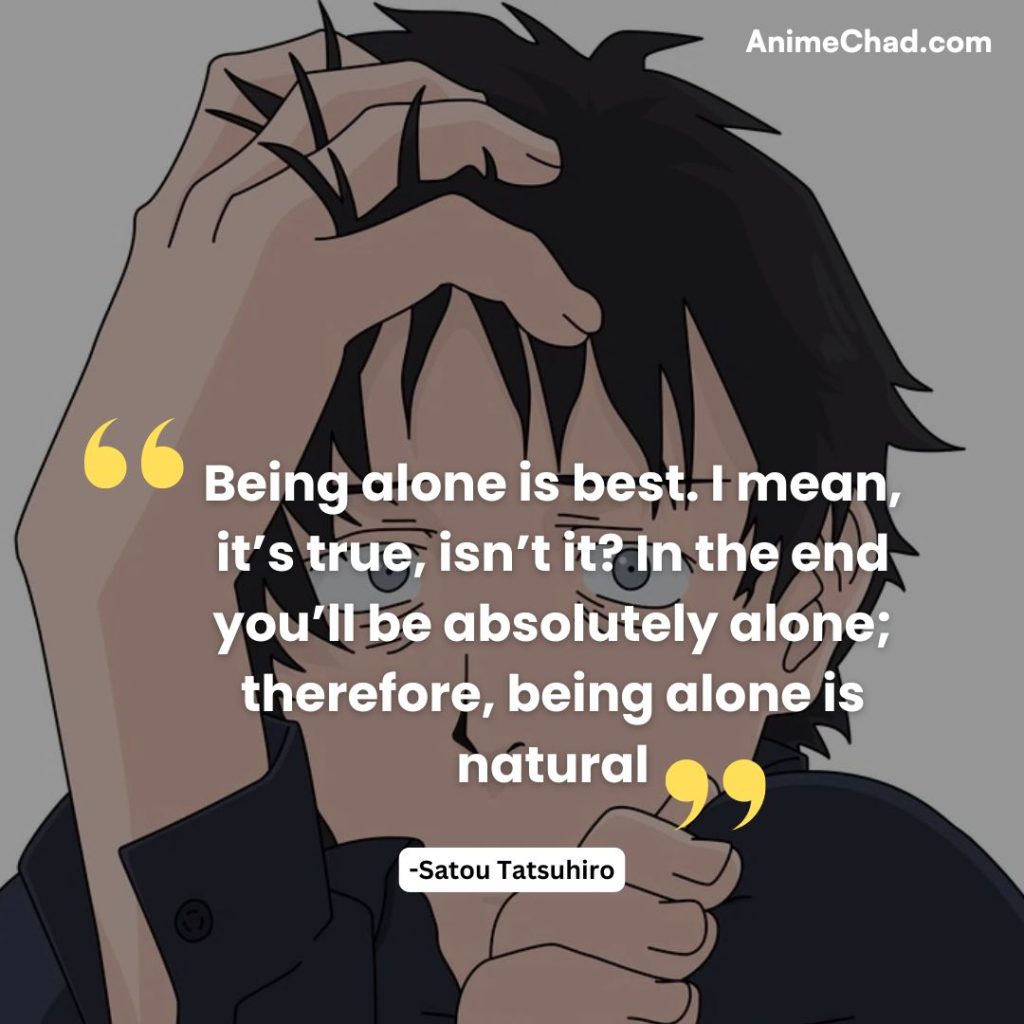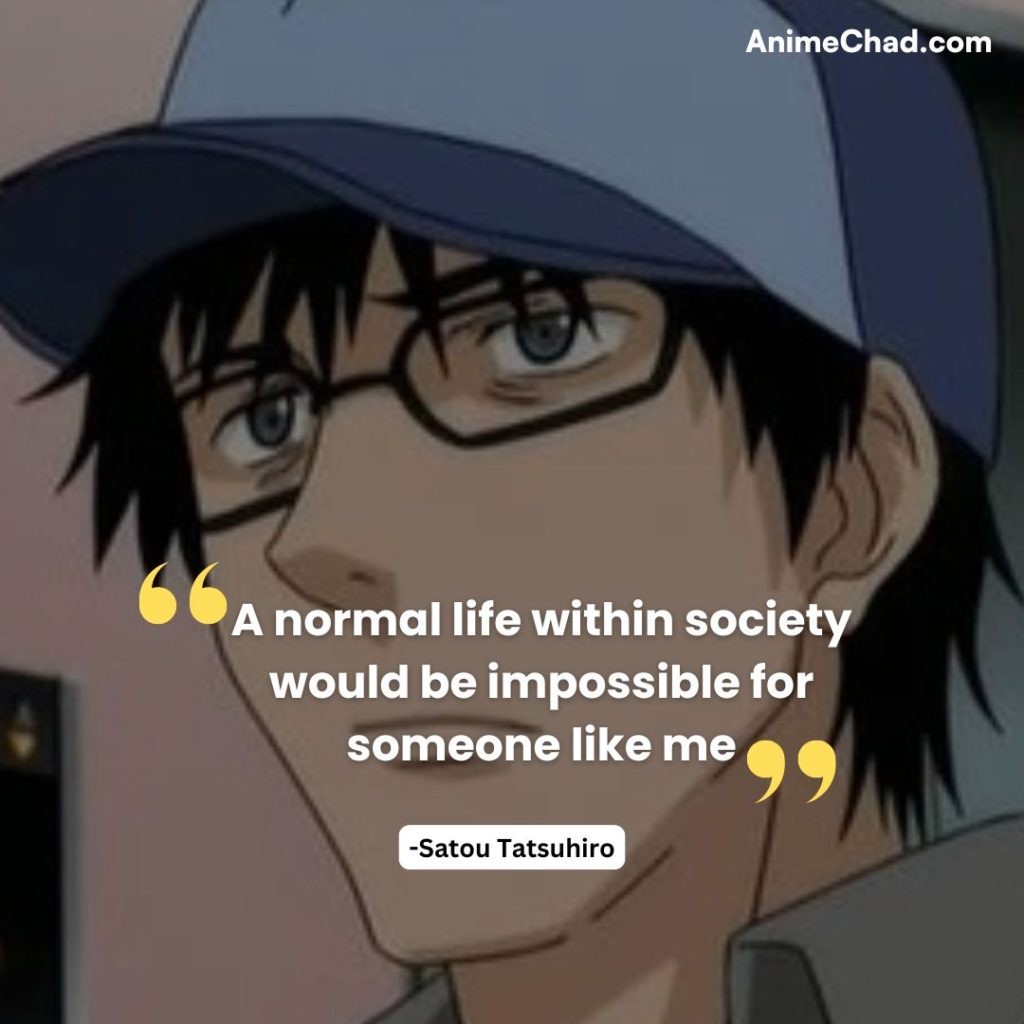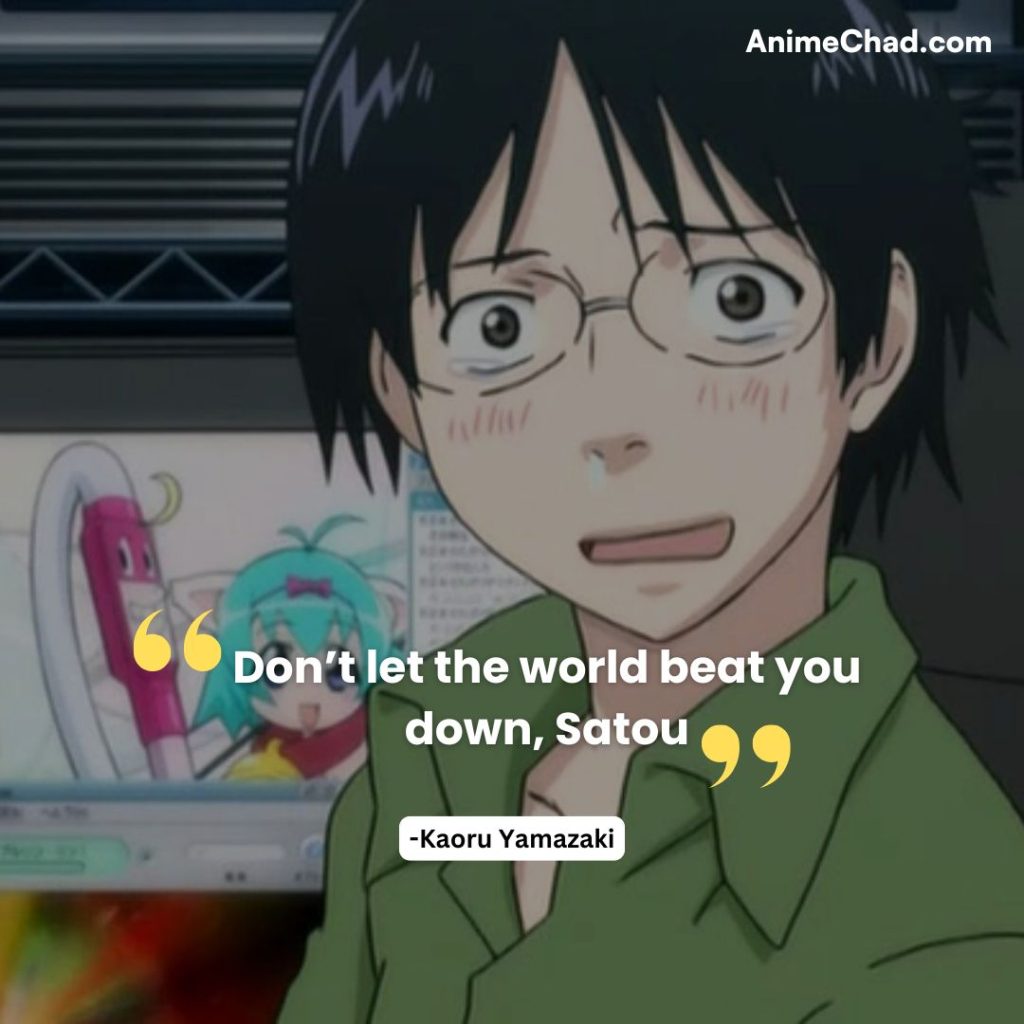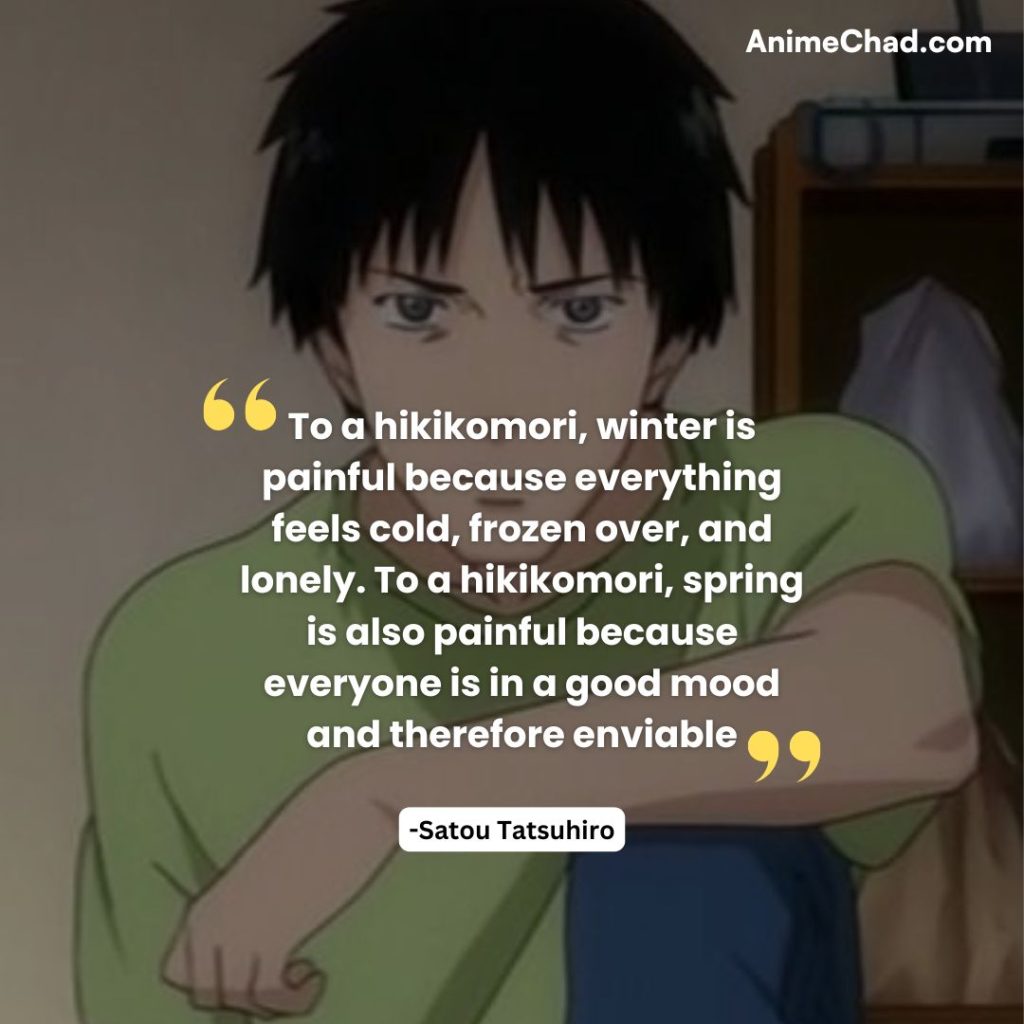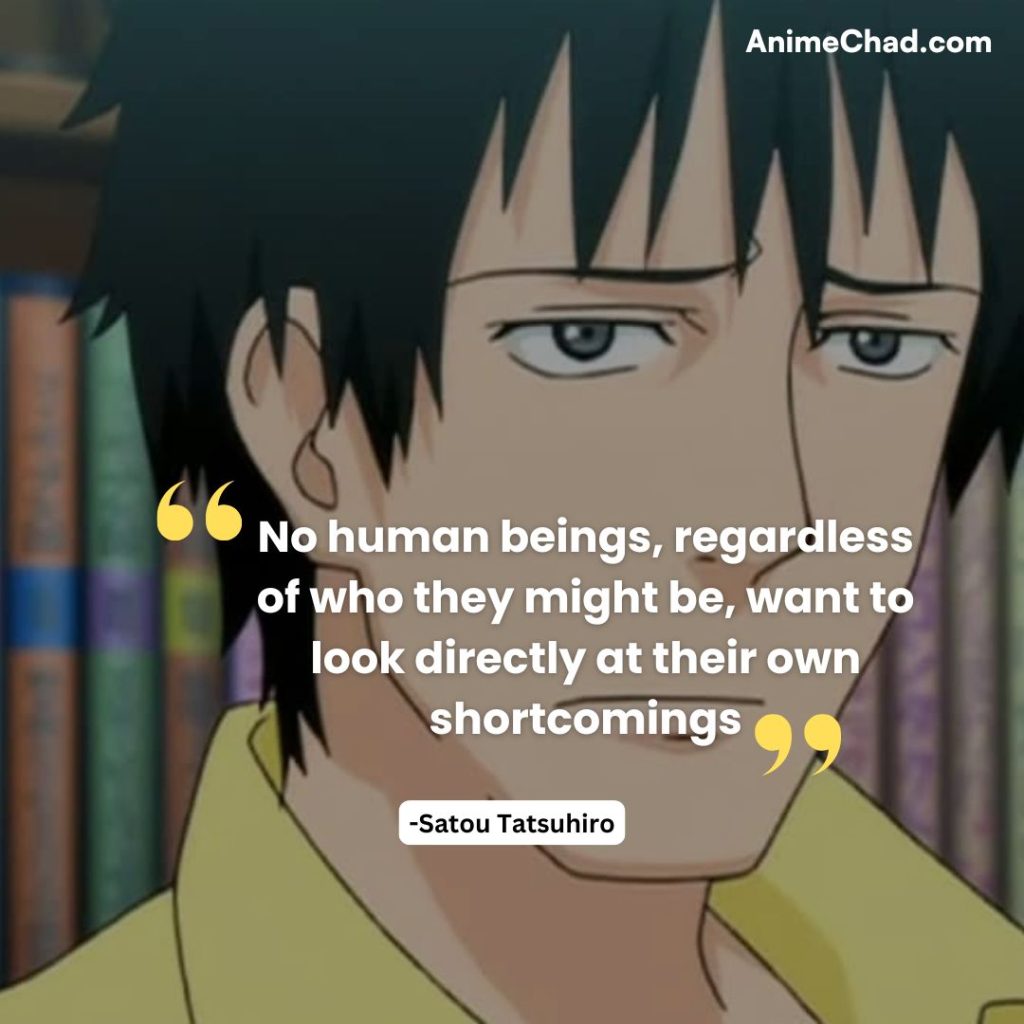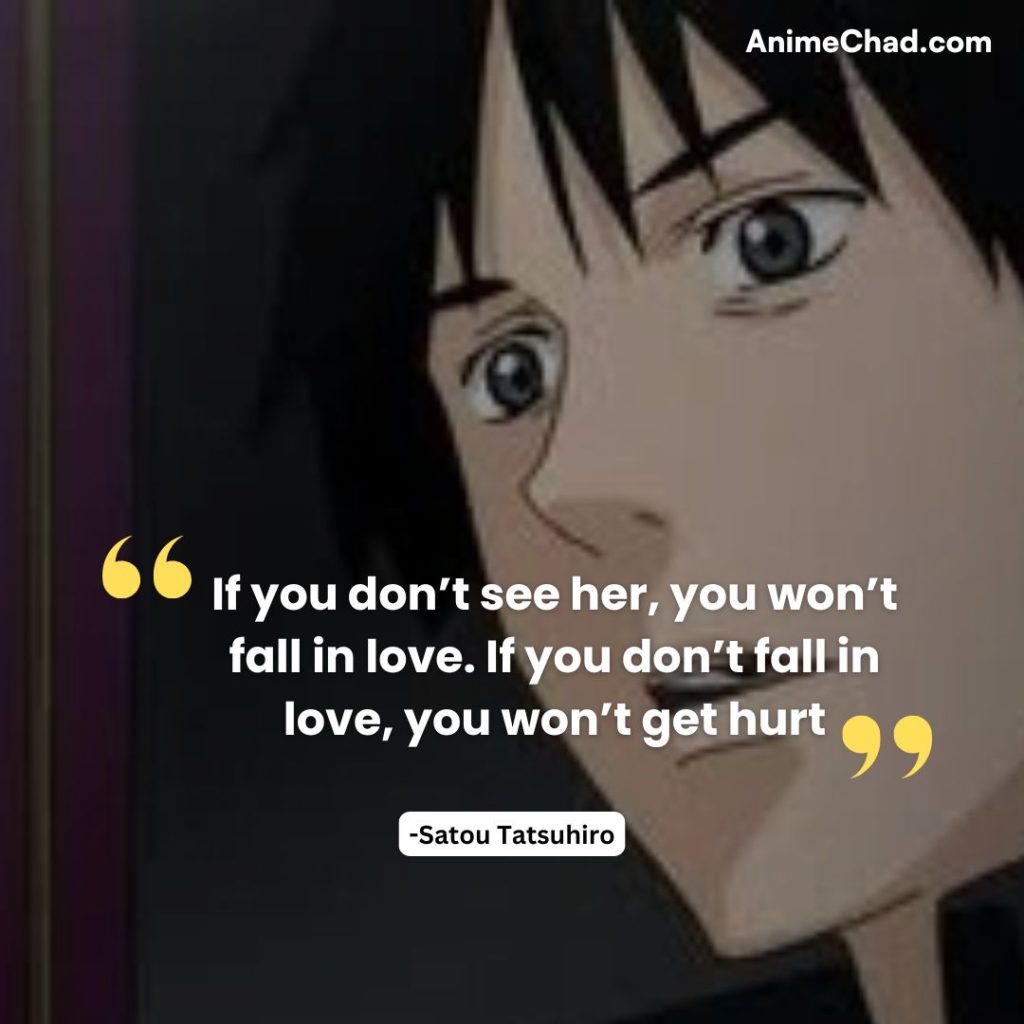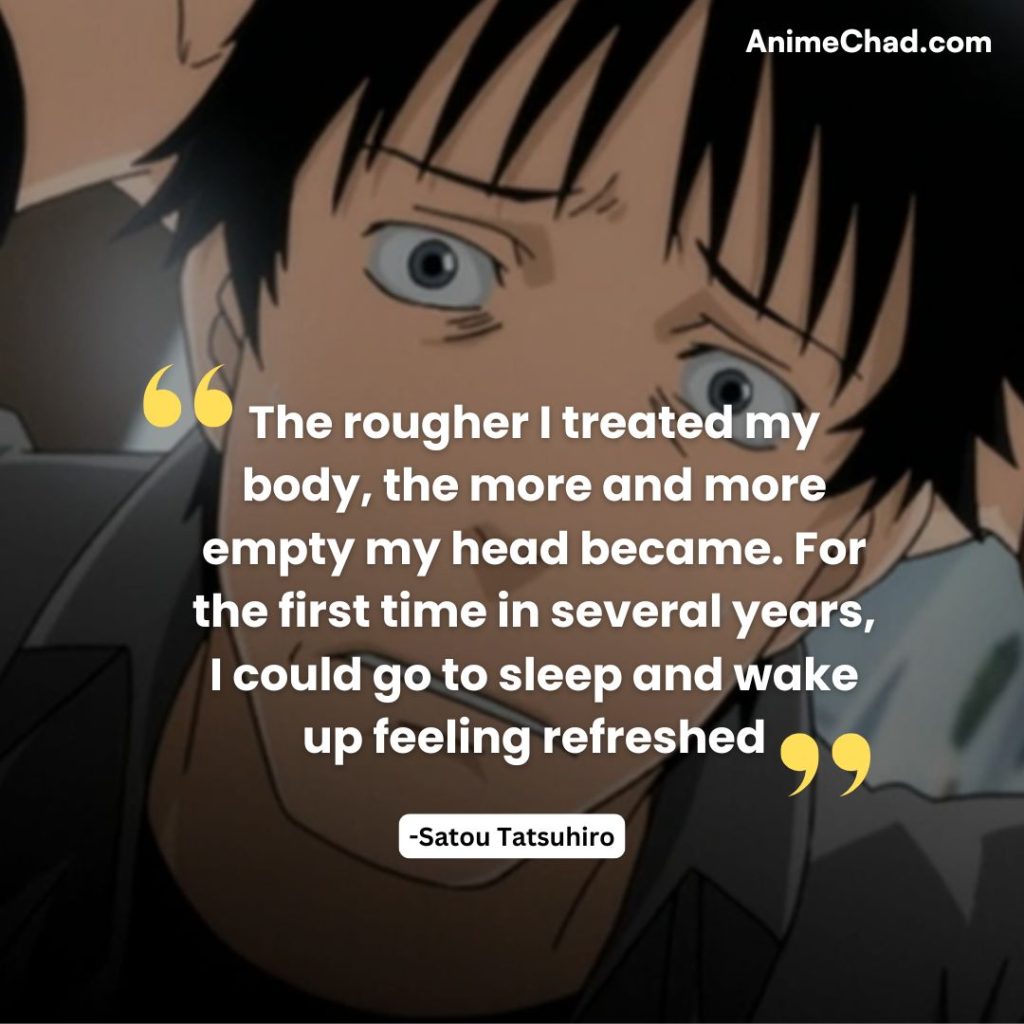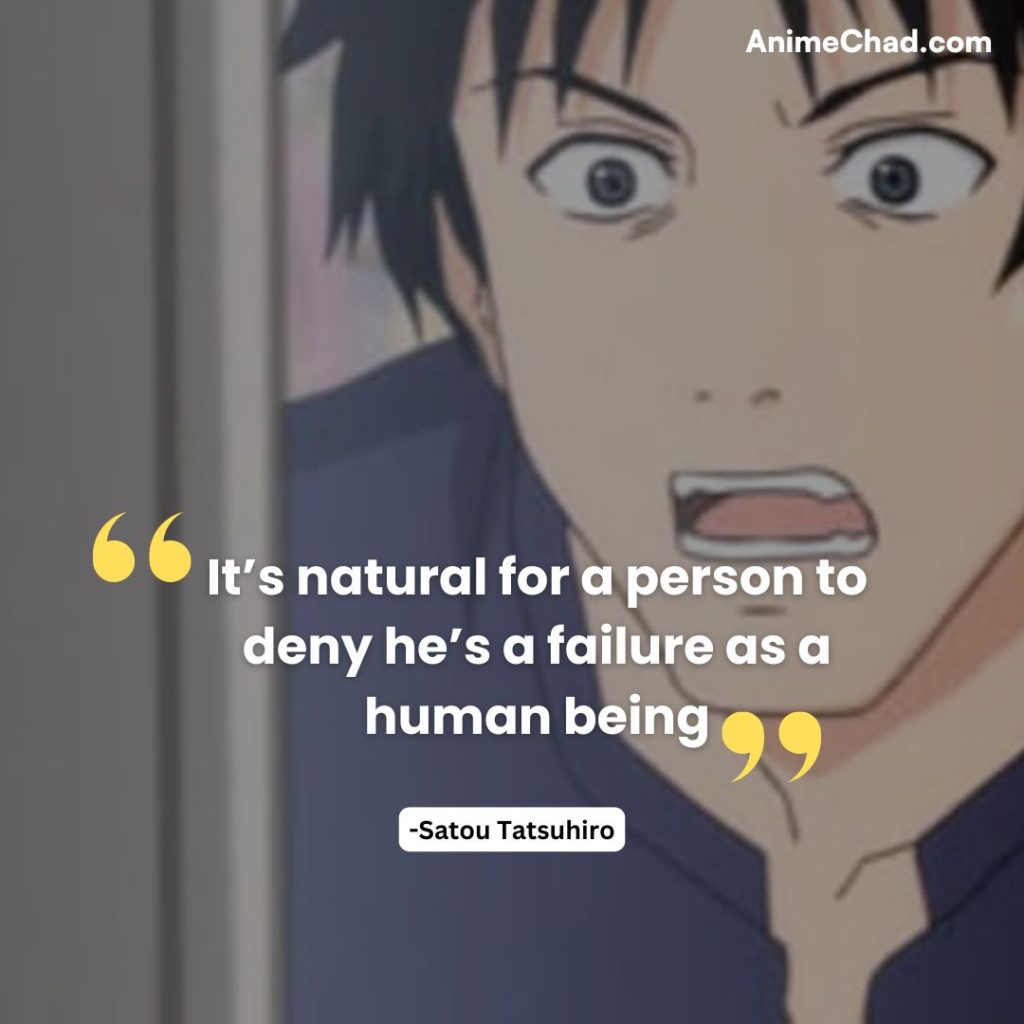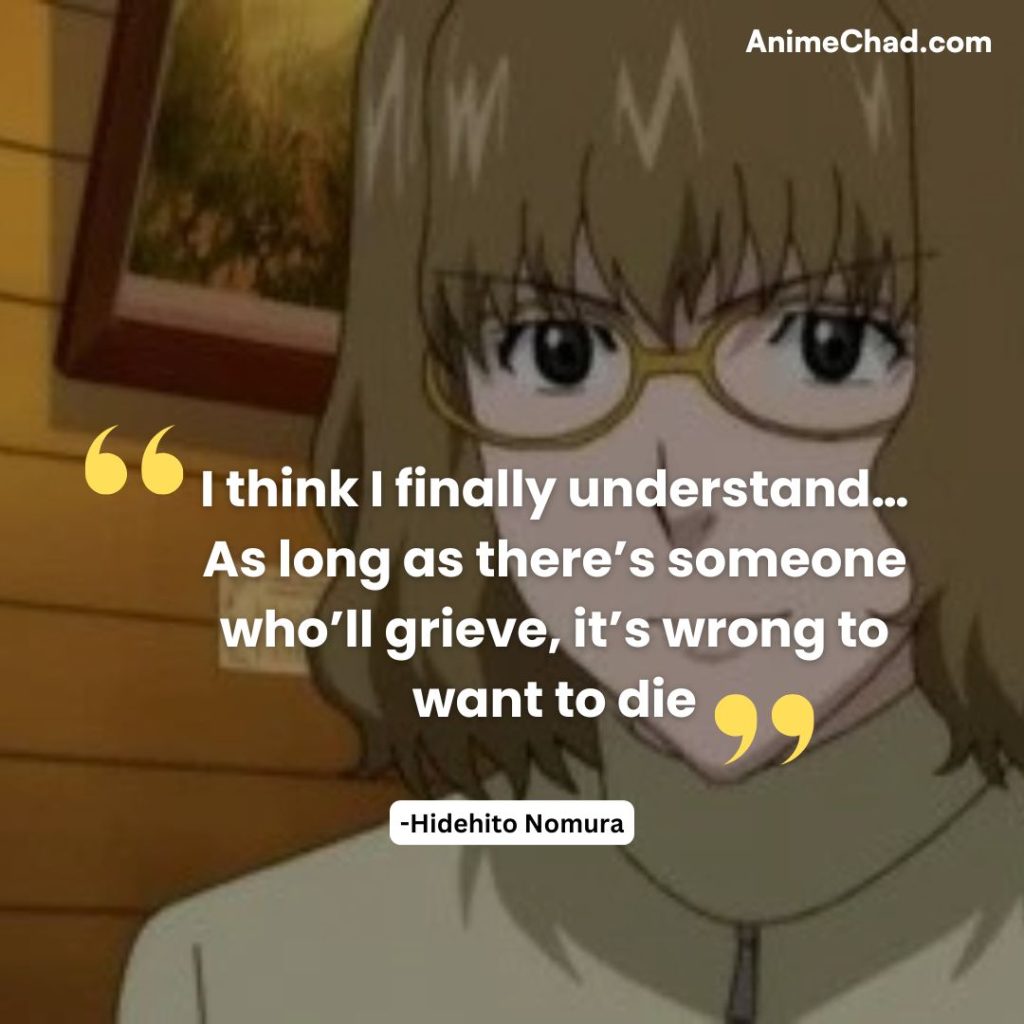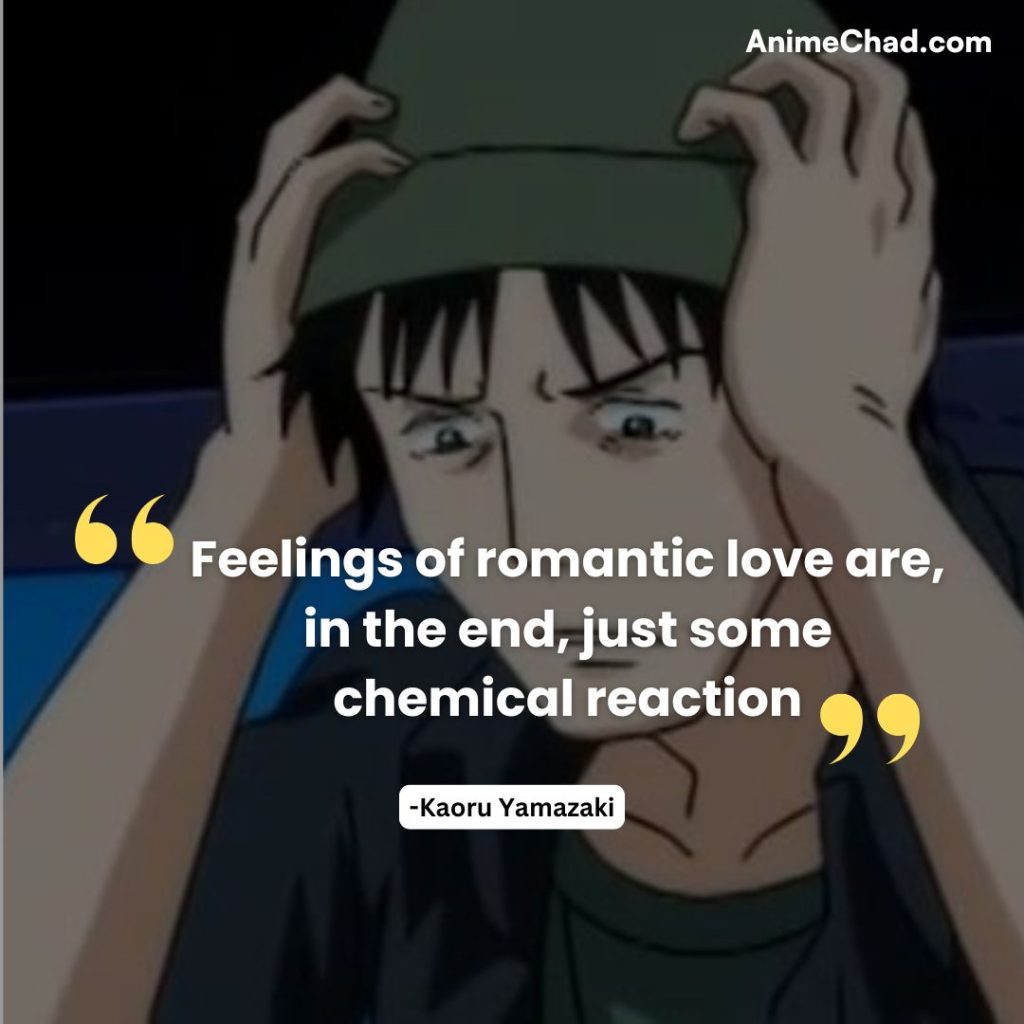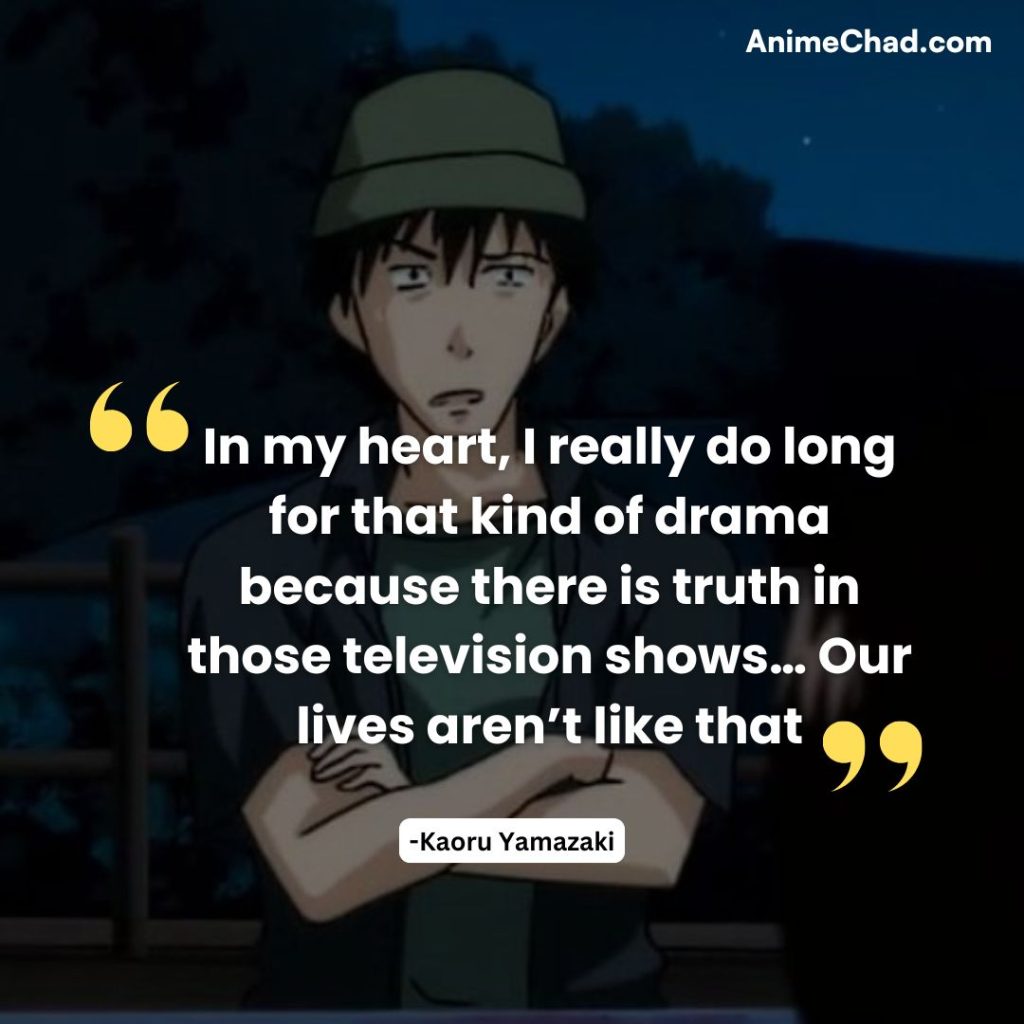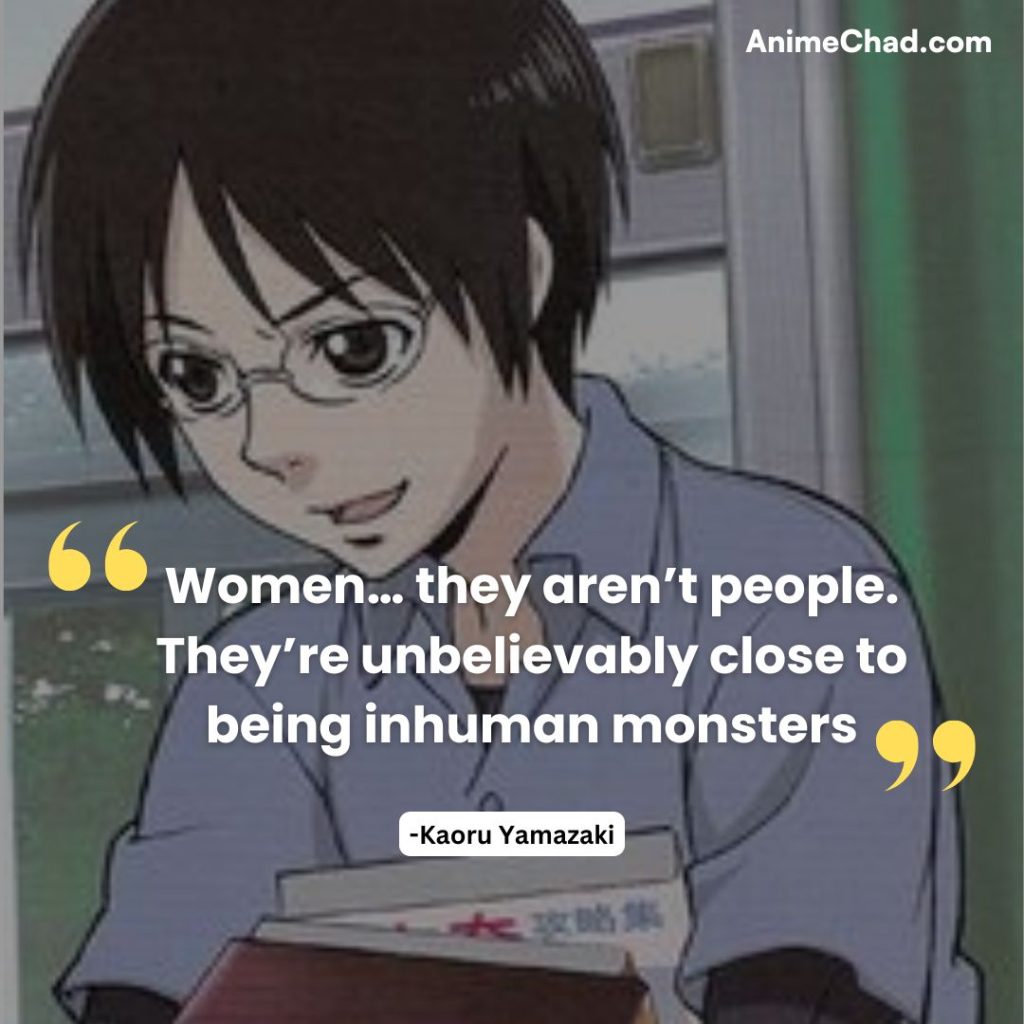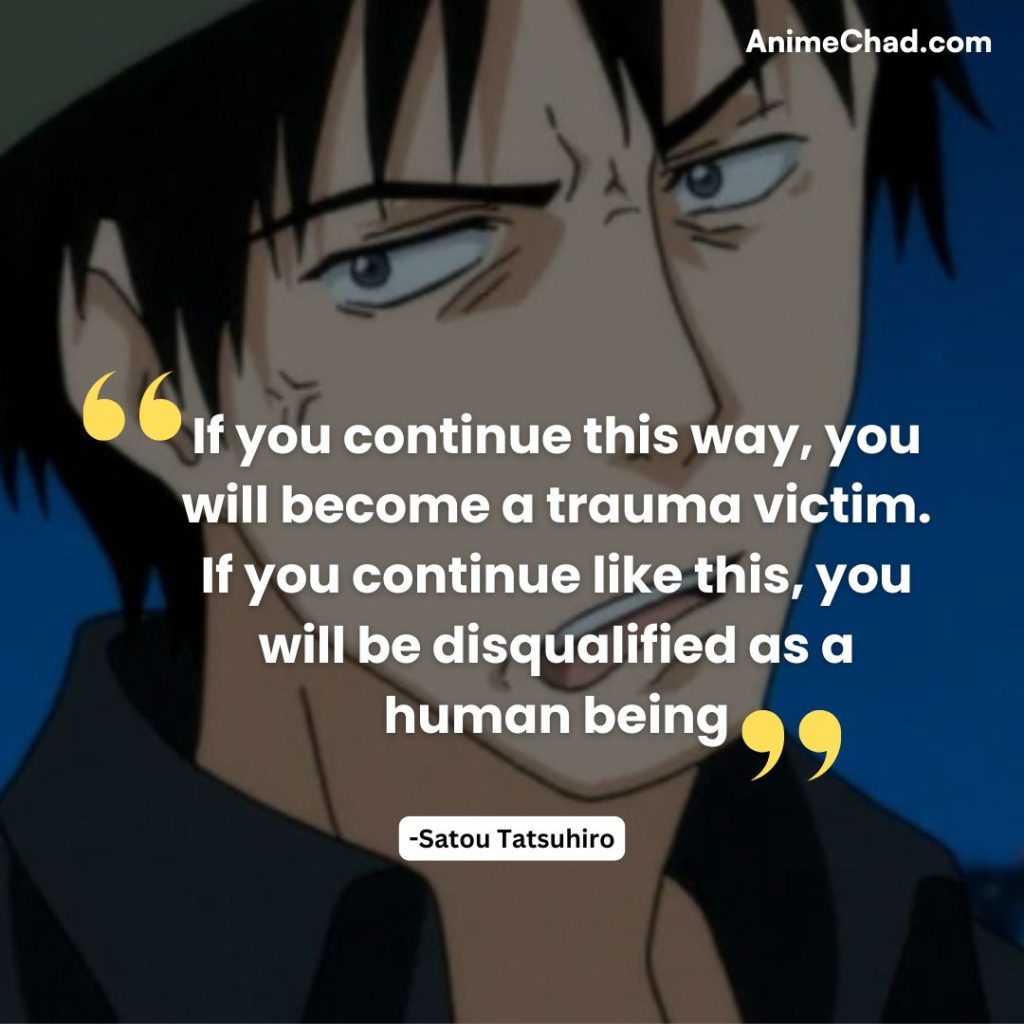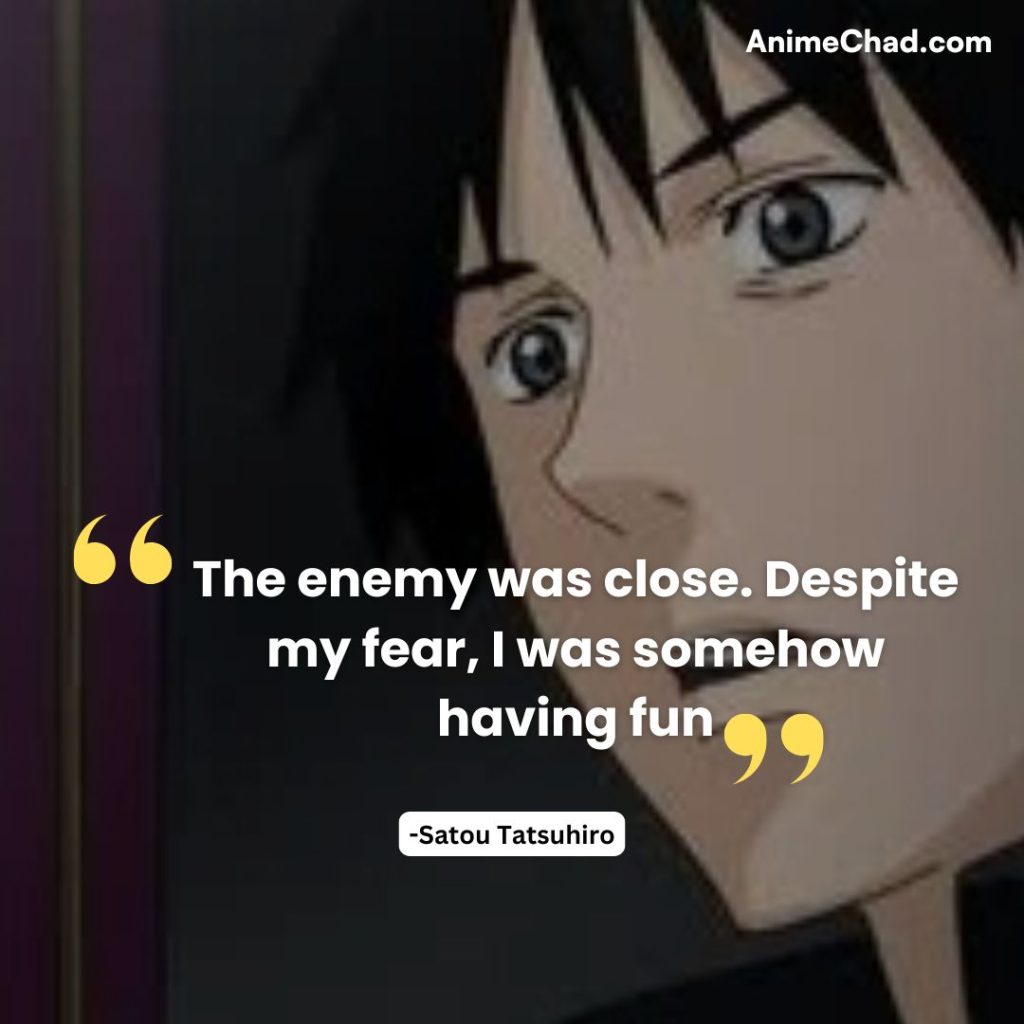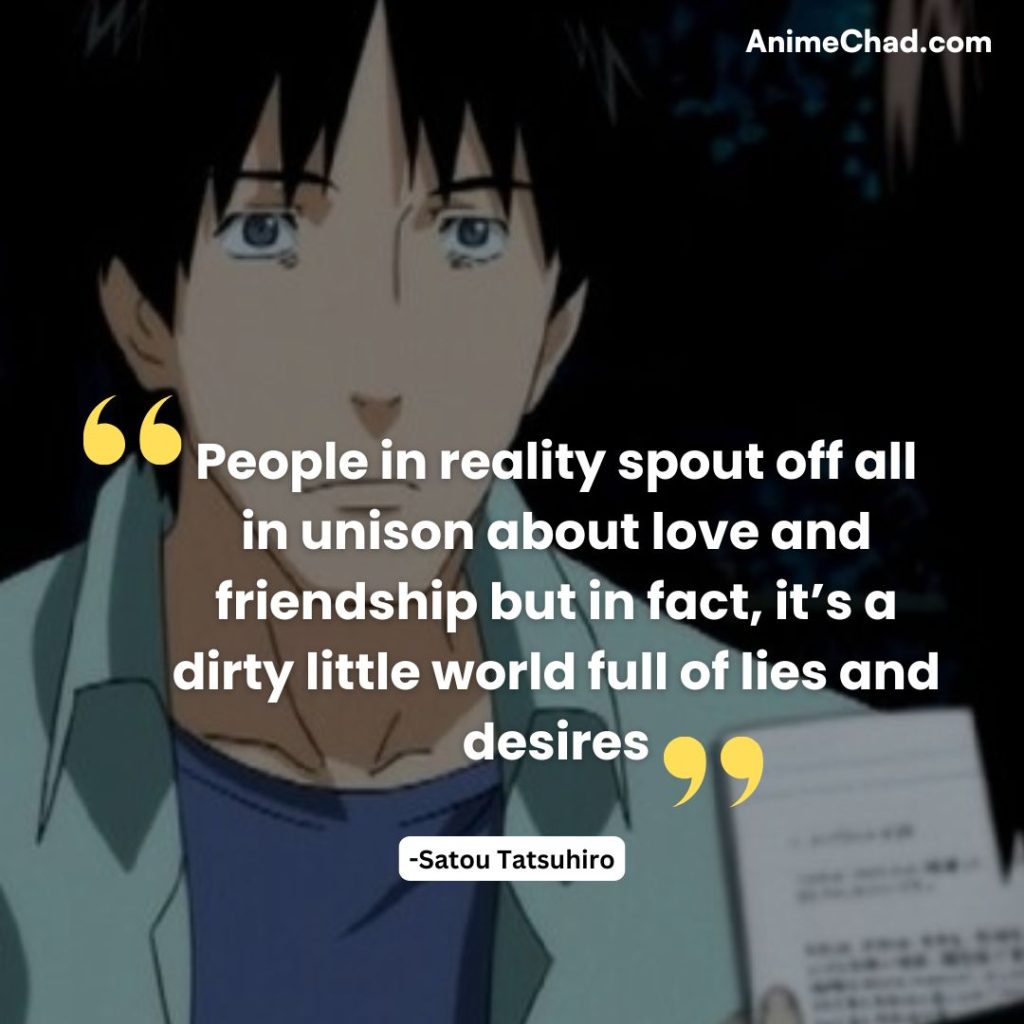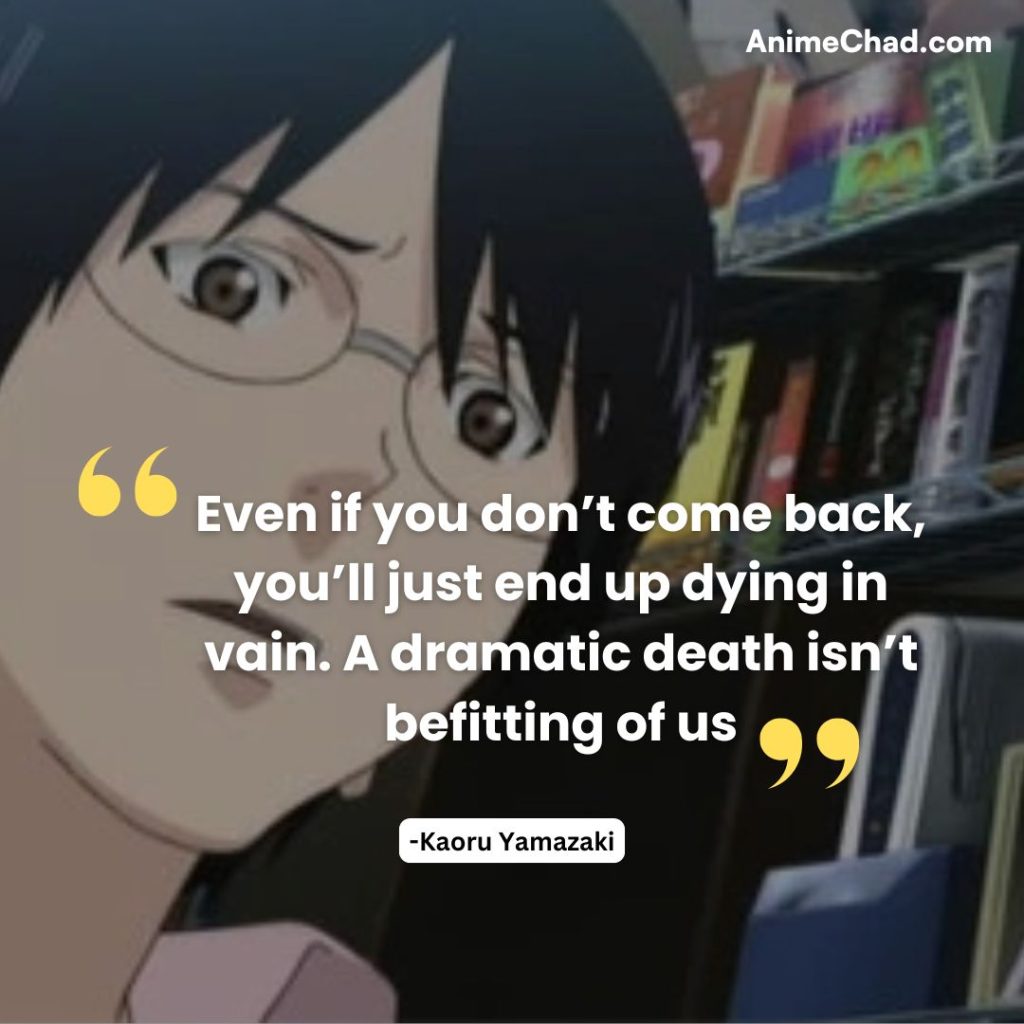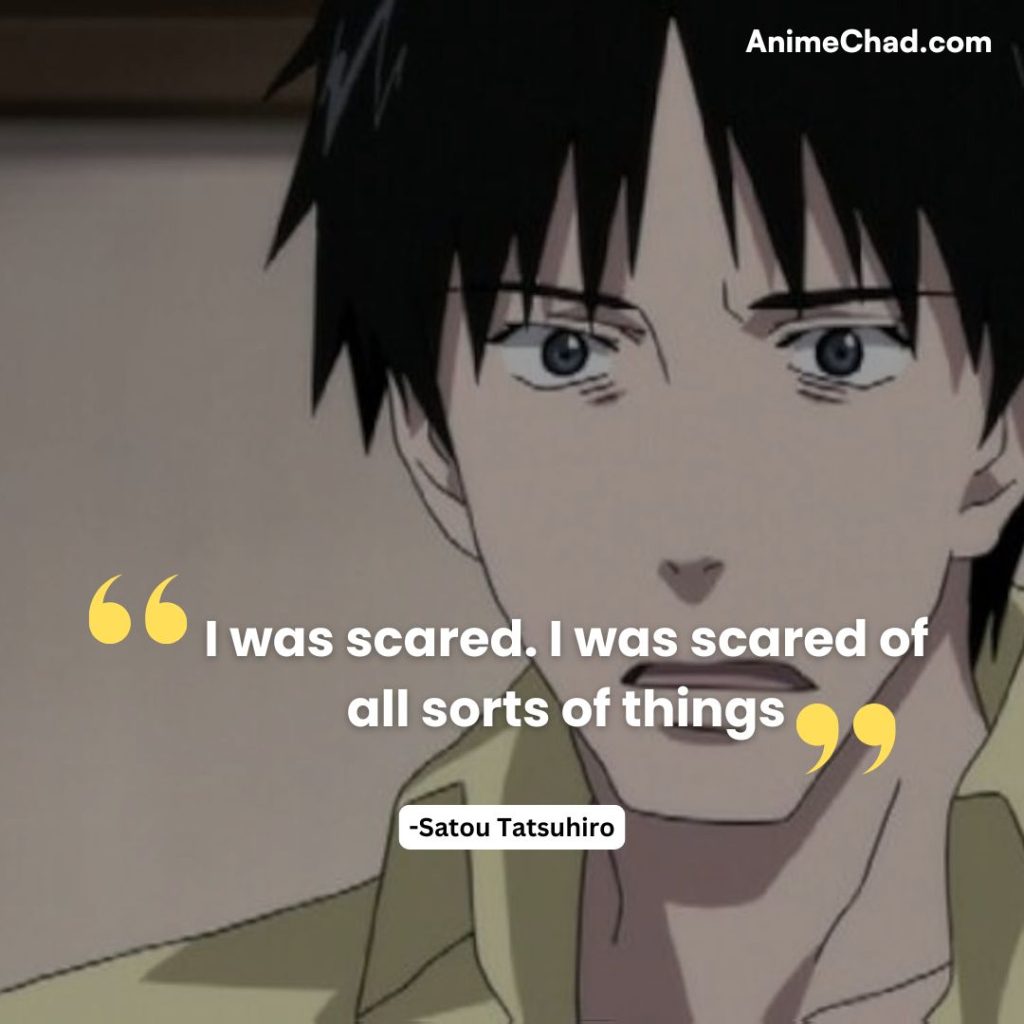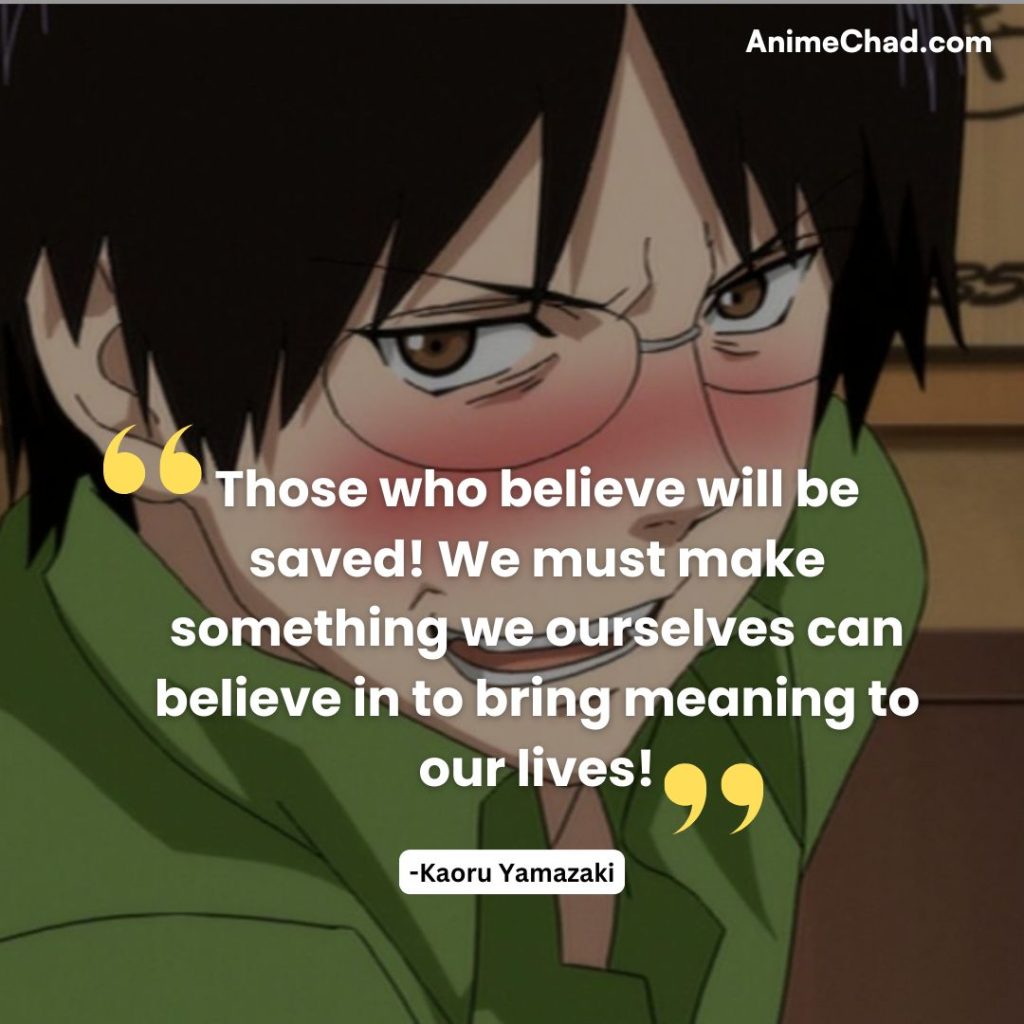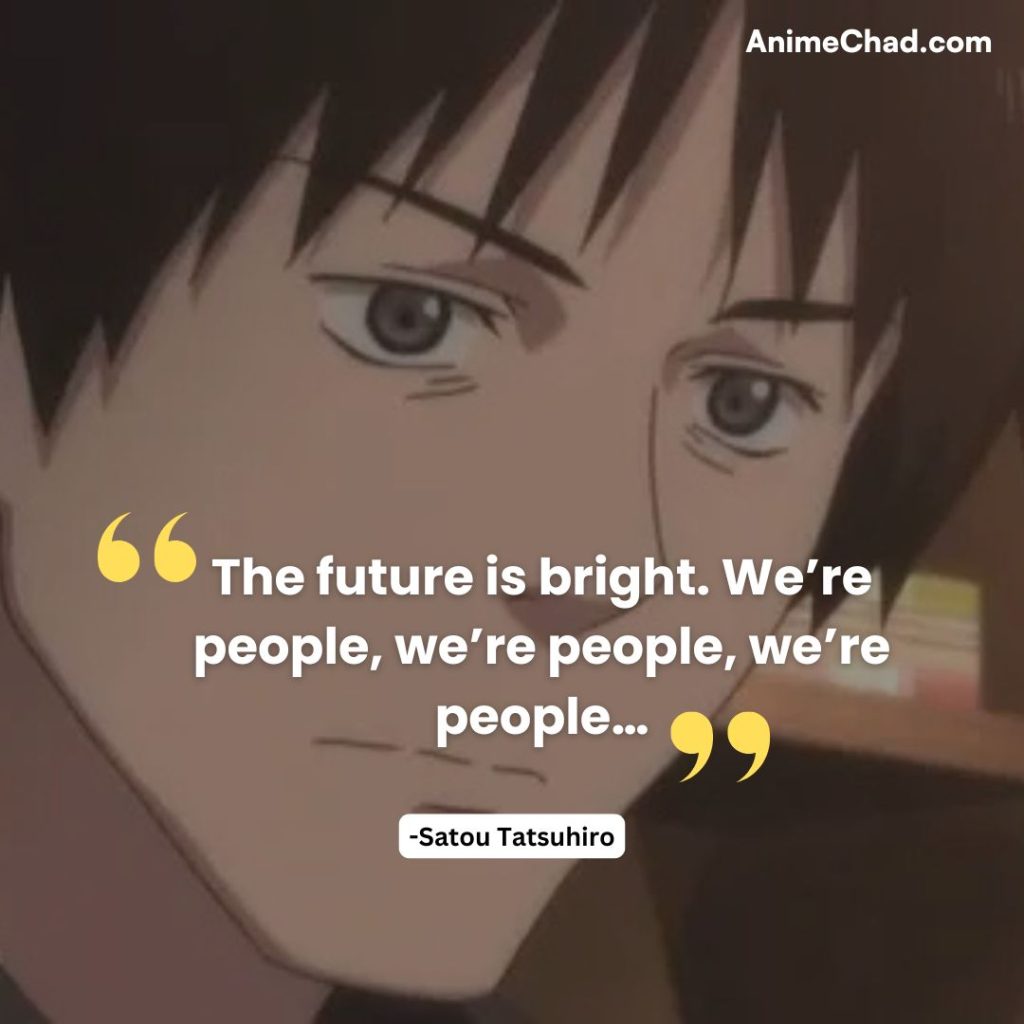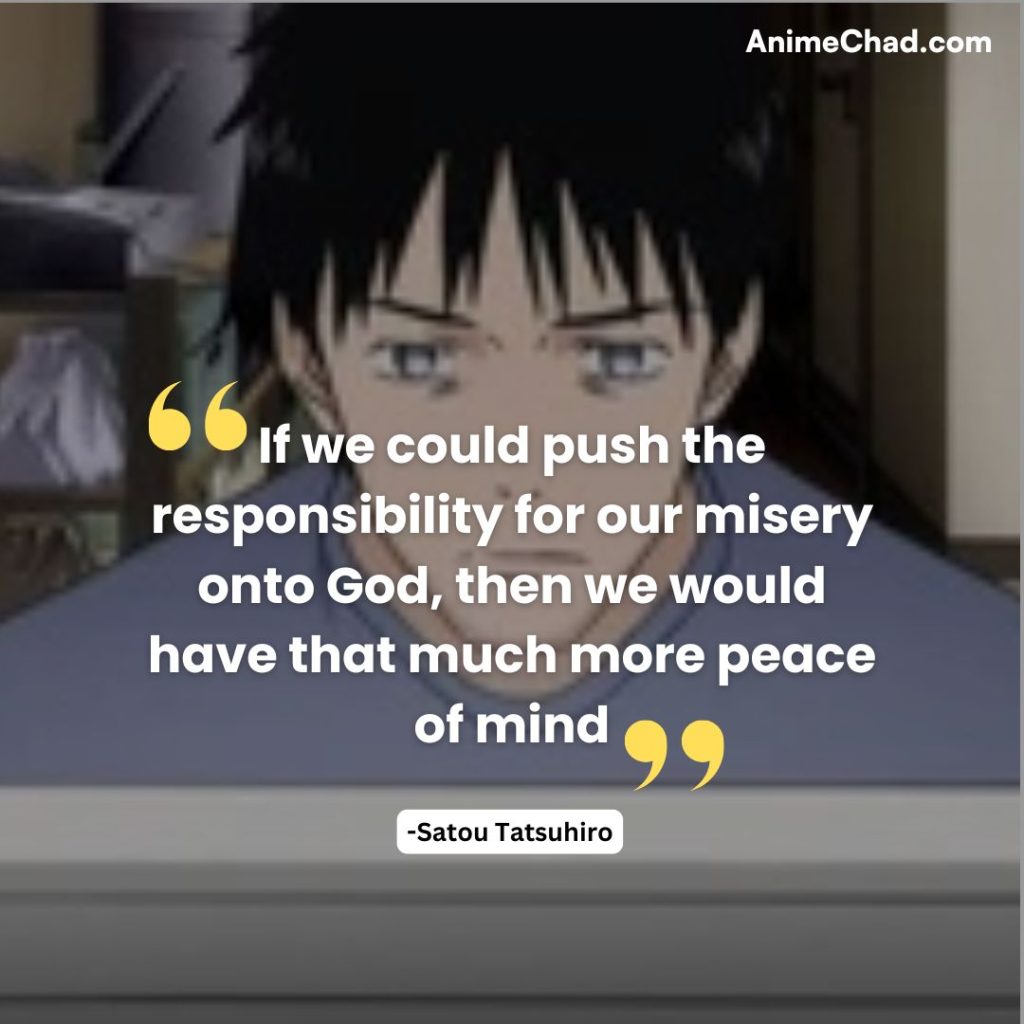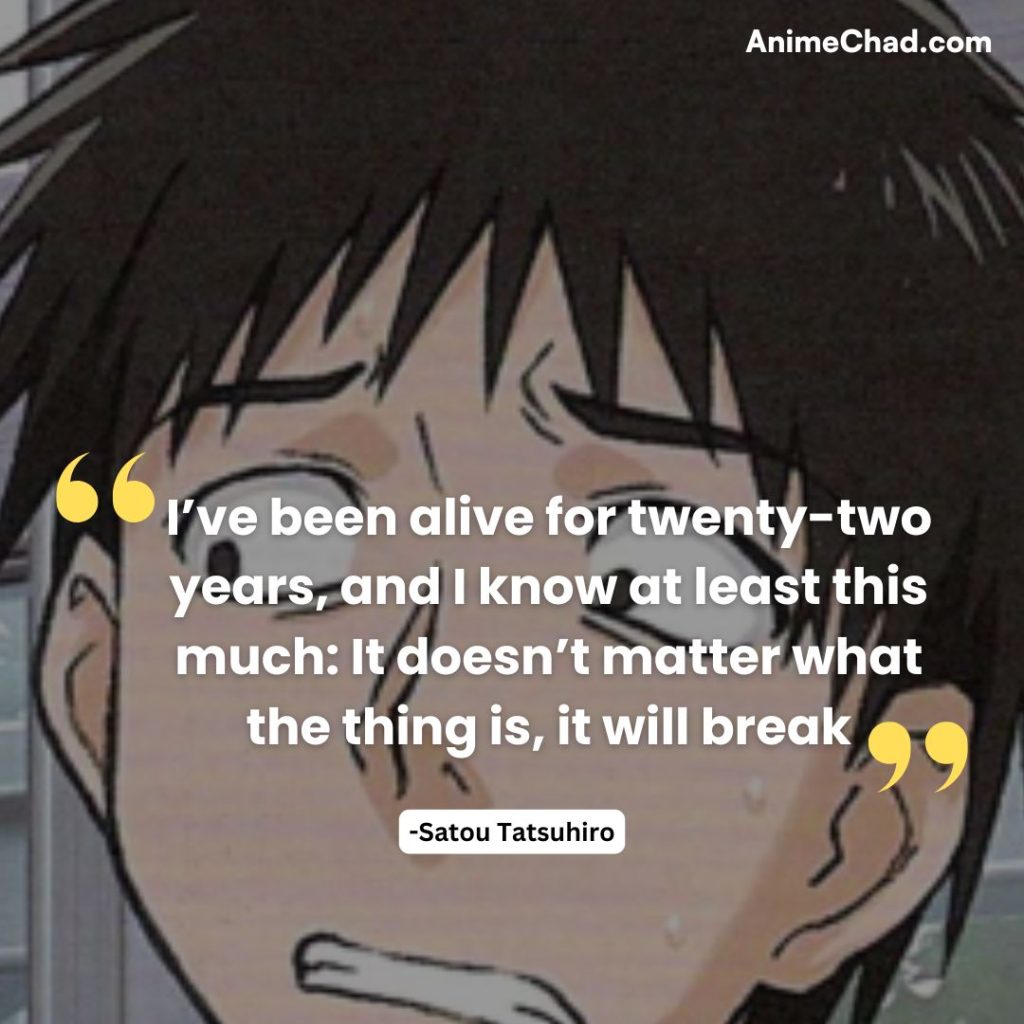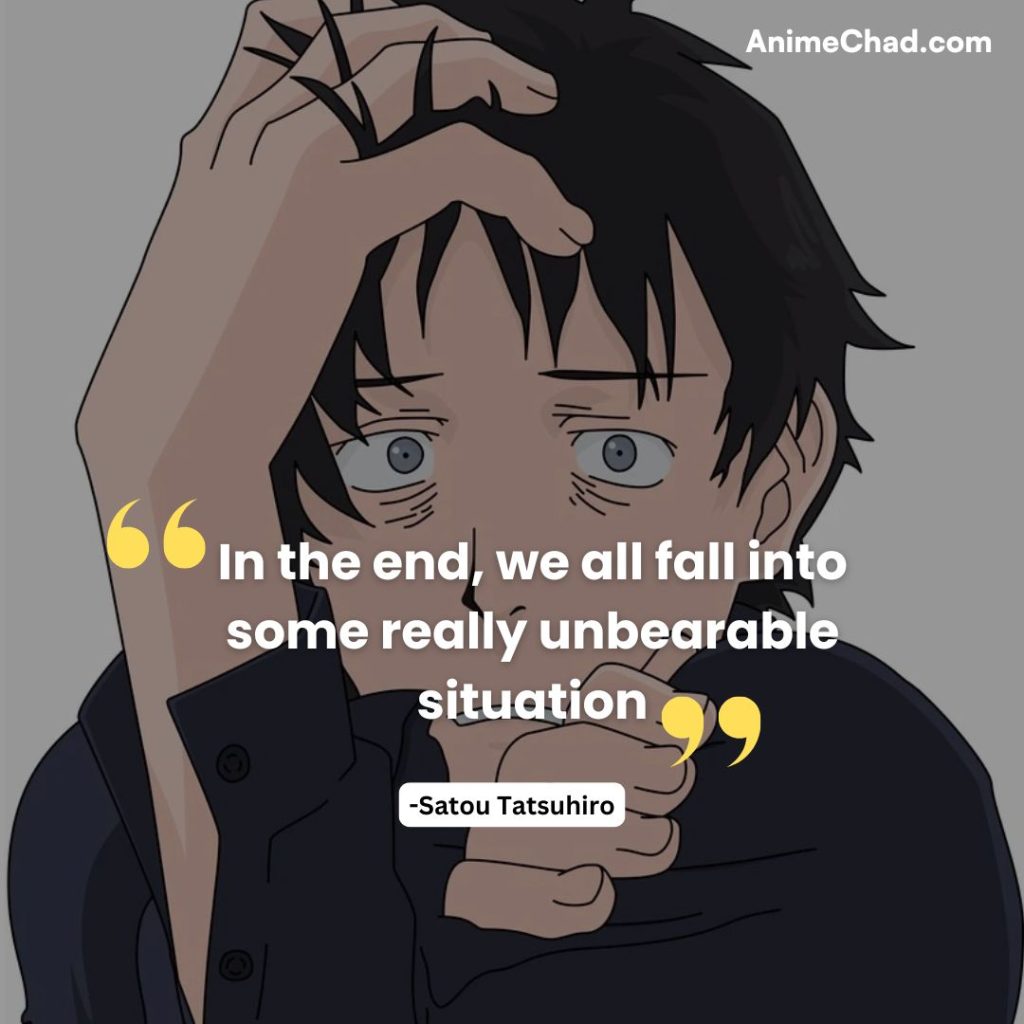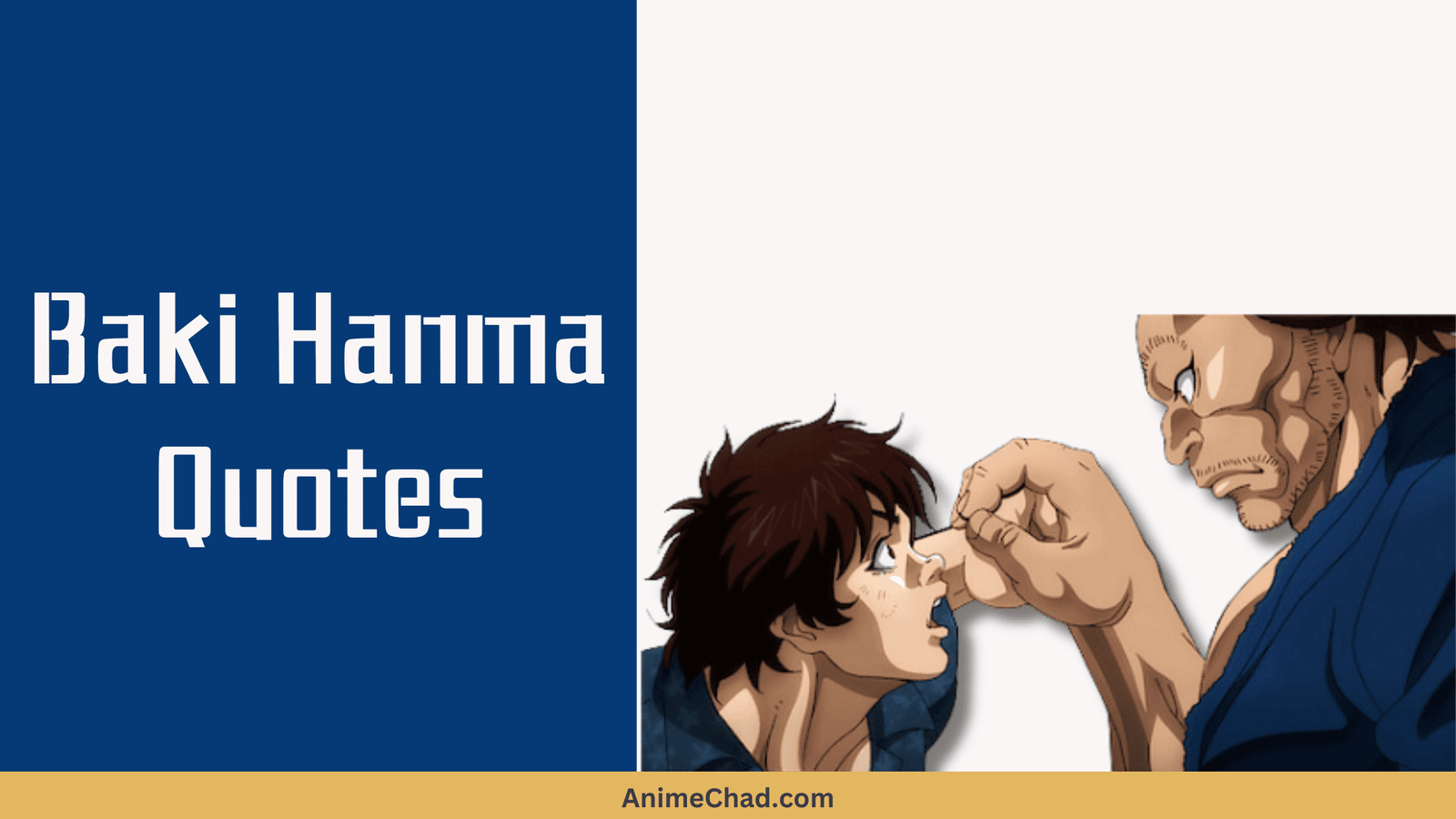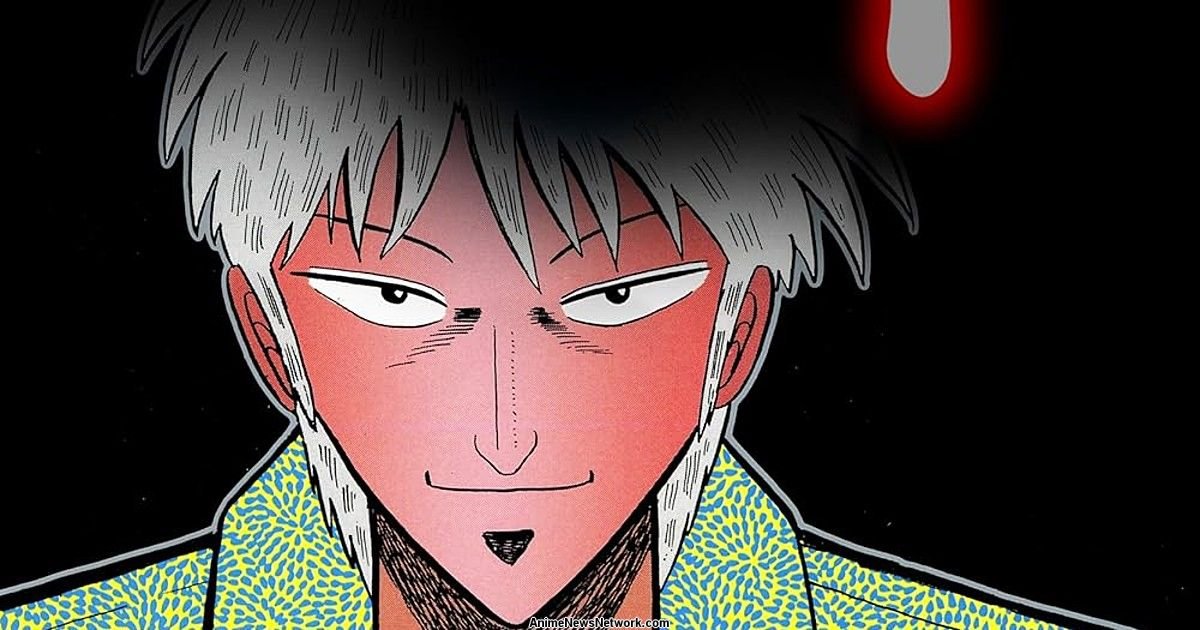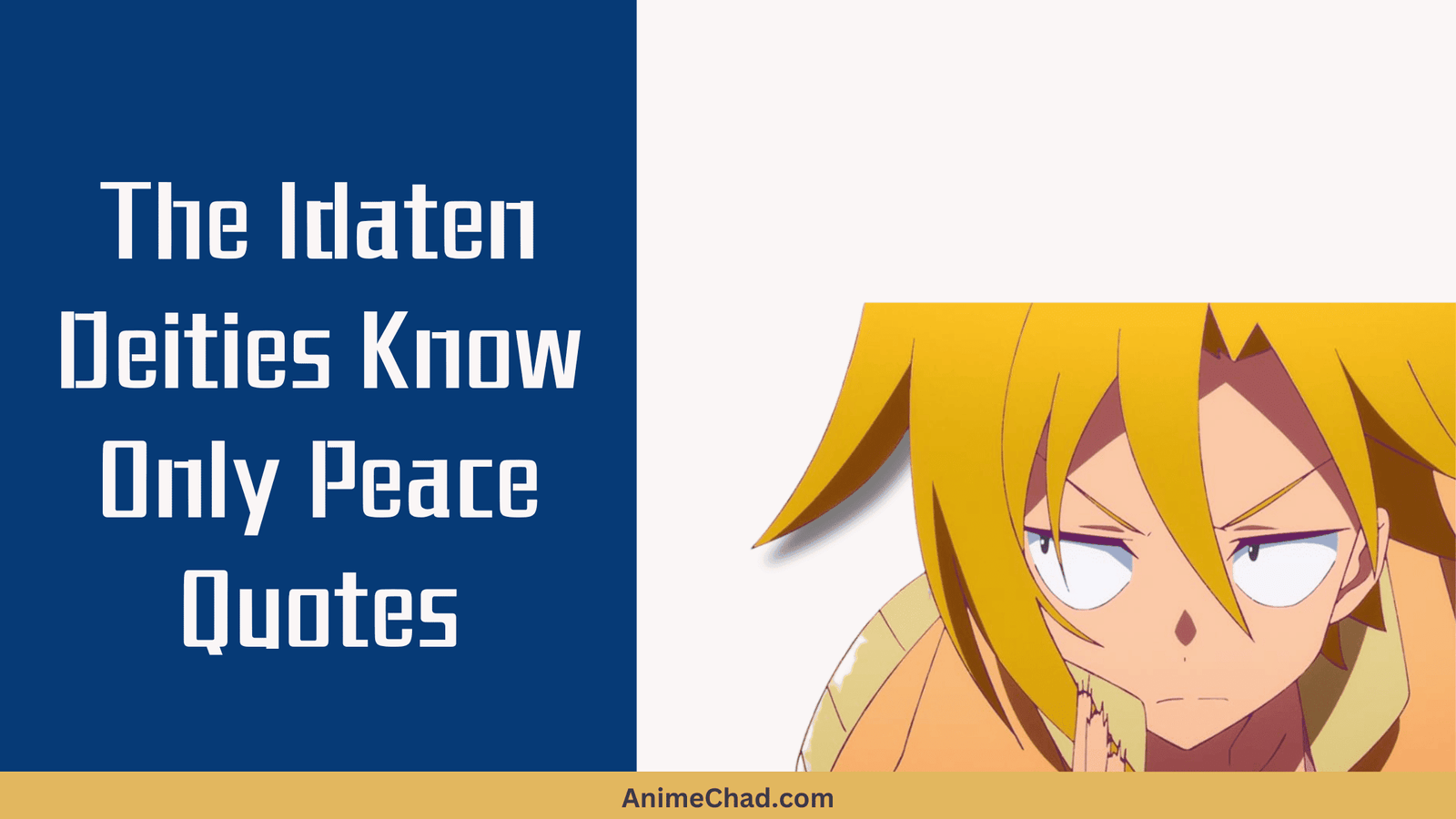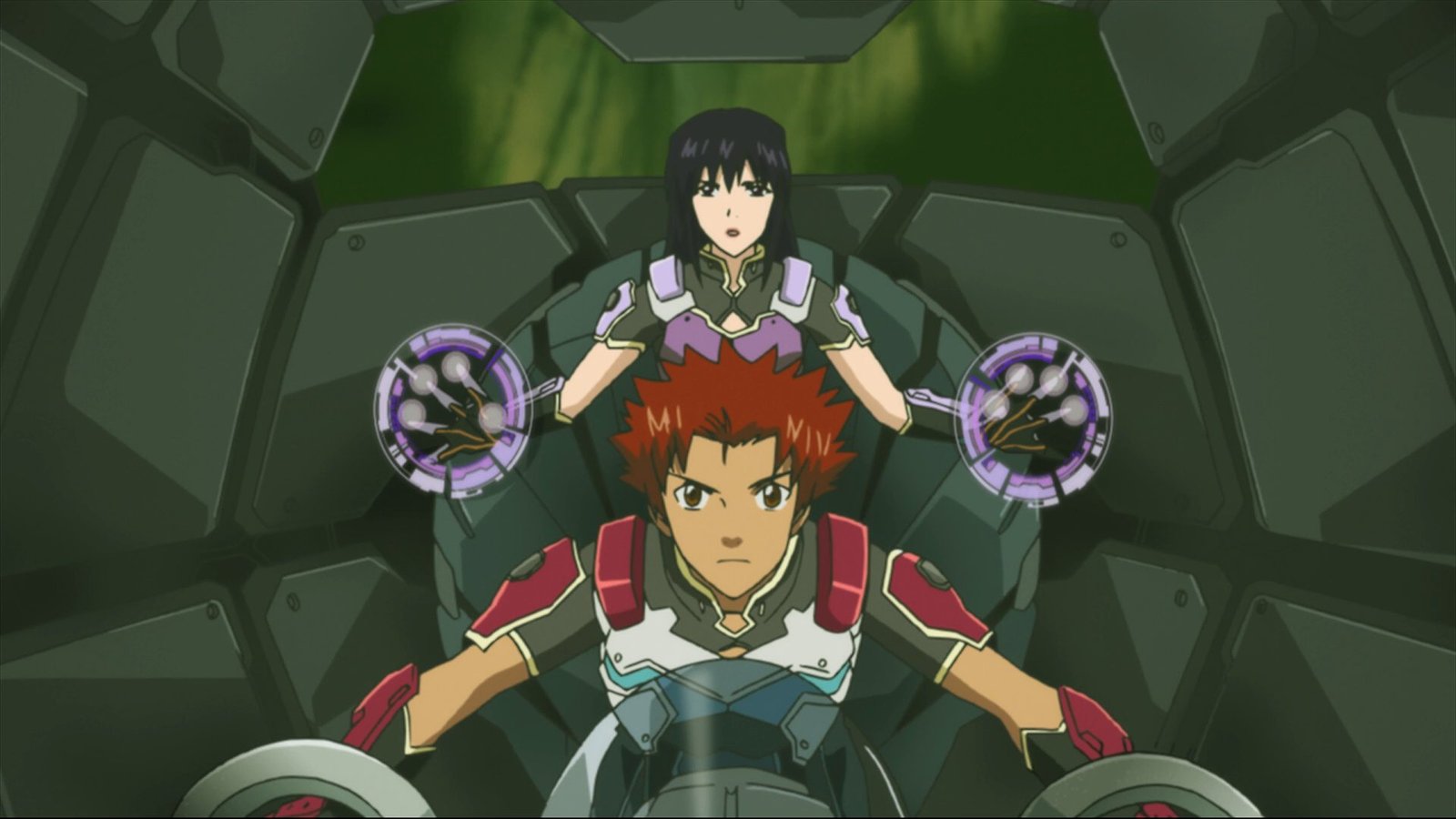Welcome to the NHK! follows Satou Tatsuhiro, a reclusive hikikomori grappling with paranoia, loneliness, and societal alienation, as he navigates a self-destructive spiral fueled by conspiracy theories.
The series explores themes of mental health, existential despair, and the struggle to find meaning in a fragmented world.
This collection highlights 25 quotes that capture the series’ raw introspection, dark humor, and poignant critique of modern isolation.
Being alone is best. I mean, it’s true, isn’t it? In the end you’ll be absolutely alone; therefore, being alone is natural
(Episode 1: The Conspiracy’s Endgame)
Satou Tatsuhiro
Satou rationalizes his isolation, reflecting his fear of vulnerability and rejection.
People who neglect to make efforts or who don’t take any actions at all are always the ones who dream that someday they will suddenly become wildly successful
(Episode 8: Summer Festival of Lies)
Misaki Nakahara
Misaki critiques Satou’s passivity, challenging his self-defeating fantasies of effortless success.
Because of our broken instincts, we are in pain. We continue living in pain, because our instincts have been twisted by reason
(Episode 12: Welcome to the Project!)
Satou Tatsuhiro
Satou’s existential lament ties human suffering to the conflict between primal drives and overthinking.
A normal life within society would be impossible for someone like me
(Manga, Chapter 5)
Satou Tatsuhiro
Satou’s resignation to his outsider status underscores his perceived inadequacy and self-loathing.
Don’t let the world beat you down, Satou
(Episode 4: Beautiful Sisters and a Misunderstanding)
Kaoru Yamazaki
Yamazaki’s blunt encouragement pushes Satou to confront his inertia, however reluctantly.
To a hikikomori, winter is painful because everything feels cold, frozen over, and lonely. To a hikikomori, spring is also painful because everyone is in a good mood and therefore enviable
(Episode 6: Advance! Online Gaming Legion)
Satou Tatsuhiro
Satou’s cyclical despair highlights the hikikomori’s perpetual alienation from societal rhythms.
No human beings, regardless of who they might be, want to look directly at their own shortcomings
(Episode 10: Let’s Make a Game)
Satou Tatsuhiro
A critique of self-delusion and the universal reluctance to confront personal flaws.
If you don’t see her, you won’t fall in love. If you don’t fall in love, you won’t get hurt
(Episode 7: Purple Summer)
Satou Tatsuhiro
Satou’s defense mechanism against emotional risk, masking his fear of connection.
The rougher I treated my body, the more and more empty my head became. For the first time in several years, I could go to sleep and wake up feeling refreshed
(Manga, Chapter 15)
Satou Tatsuhiro
Physical labor temporarily numbs Satou’s existential angst, revealing his craving for purpose.
It’s natural for a person to deny he’s a failure as a human being
(Episode 9: Suicide Pact)
Satou Tatsuhiro
Satou dissects the psychology of self-deception and the hunt for inferior others to feel superior.
I think I finally understand… As long as there’s someone who’ll grieve, it’s wrong to want to die
(Episode 13: Welcome to the NHK!)
Hidehito Nomura
A side character’s realization about the ripple effects of suicide, challenging Satou’s nihilism.
Feelings of romantic love are, in the end, just some chemical reaction
(Episode 11: Christmas and Betrayal)
Kaoru Yamazaki
Yamazaki’s cynical take on love contrasts with his own unspoken longing for connection.
In my heart, I really do long for that kind of drama because there is truth in those television shows… Our lives aren’t like that
(Episode 5: The Girl Who Came to Save Me)
Kaoru Yamazaki
Yamazaki mourns the absence of narrative structure in real life, yearning for catharsis.
Women… they aren’t people. They’re unbelievably close to being inhuman monsters
(Episode 3: Beautiful Sisters and a Misunderstanding)
Kaoru Yamazaki
Yamazaki’s misogynistic rant masks his fear of rejection and emotional incompetence.
If you continue this way, you will become a trauma victim. If you continue like this, you will be disqualified as a human being
(Manga, Chapter 8)
Satou Tatsuhiro
Satou’s self-aware yet paralyzing fear of irreversible social decay.
The enemy was close. Despite my fear, I was somehow having fun
(Episode 2: The Conspiracy Deepens)
Satou Tatsuhiro
Satou’s paranoia about the NHK “conspiracy” becomes a perverse source of purpose.
People in reality spout off all in unison about love and friendship but in fact, it’s a dirty little world full of lies and desires
(Episode 12: Welcome to the Project!)
Satou Tatsuhiro
Satou’s disillusionment with societal hypocrisy fuels his retreat into isolation.
Even if you don’t come back, you’ll just end up dying in vain. A dramatic death isn’t befitting of us
(Episode 9: Suicide Pact)
Kaoru Yamazaki
Yamazaki rejects grand gestures of despair, advocating for mundane perseverance.
I was scared. I was scared of all sorts of things
(Manga, Chapter 20)
Satou Tatsuhiro
Satou’s raw admission of fear humanizes his otherwise self-destructive behavior.
Those who believe will be saved! We must make something we ourselves can believe in to bring meaning to our lives!
(Episode 10: Let’s Make a Game)
Kaoru Yamazaki
Yamazaki’s desperate plea for purpose through creative collaboration.
The future is bright. We’re people, we’re people, we’re people…
(Episode 13: Welcome to the NHK!)
Satou Tatsuhiro
Satou’s sardonic mimicry of empty optimism, critiquing societal platitudes.
If we could push the responsibility for our misery onto God, then we would have that much more peace of mind
(Manga, Chapter 12)
Satou Tatsuhiro
Satou’s longing for external scapegoats to absolve personal accountability.
I’ve been alive for twenty-two years, and I know at least this much: It doesn’t matter what the thing is, it will break
(Episode 7: Purple Summer)
Satou Tatsuhiro
Satou’s nihilistic resignation to impermanence and loss.
You’re fine the way you are. You have dreams, so you’ll be all right
(Episode 13: Welcome to the NHK!)
Misaki Nakahara
Misaki’s fragile hope for Satou, masking her own unresolved trauma.
In the end, we all fall into some really unbearable situation
(Manga, Chapter 22)
Satou Tatsuhiro
A bleak yet universal observation about the inevitability of suffering.
These quotes encapsulate Welcome to the NHK!’s unflinching examination of modern alienation, where humor and despair coexist in a battle for self-redemption. Each line reflects the series’ refusal to sugarcoat the complexities of mental health and human connection.

